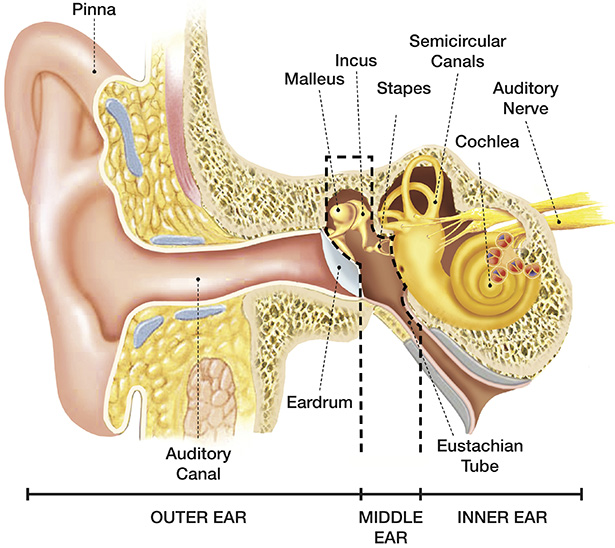Diving with the Eyes of an Ear, Nose and Throat Specialist II.
The Hearing Canal
Every diver’s nightmare is the less or more painful ear ache starting on the second or third day of the scuba diving safari which could also last for the whole week. There are many reasons for these ear aches but most common is the inflammation of the hearing canal. The hearing canal lies between the outer ear and the ear drums. Its function is to get the sound waves to the ear drums and in part, the protection of the ear drums. In an adult ear, the surface of this “S”-shaped organ is covered with a fine layer of skin.
This skin layer contains the suet glands that produce a special substance,the ear wax (cerumen in Latin). In normal cases, the ear wax thinly coats the skin of the hearing canal, acting as an anti-bacterial agent and protecting it from infections. Like with most good things, there may be a couple of problems with ear wax: not enough or too much.
 If there is not enough, the hearing canal is dry, itchy and can easily crack, leaving room for the bacteria to reach the deeper layers of the skin. If there is too much, it can accumulate and cause a plug, partially or completely closing the hearing canal which may cause annoying decreased hearing.
If there is not enough, the hearing canal is dry, itchy and can easily crack, leaving room for the bacteria to reach the deeper layers of the skin. If there is too much, it can accumulate and cause a plug, partially or completely closing the hearing canal which may cause annoying decreased hearing.
From all these we can quickly conclude that the use of Q-tips (earcleaning sticks), preferred by most people, can be the source of many problems, so they should be used only to gently help out the ear wax that is already on the edge of the ear canal. If we use them deeper in the ear and we regularly clean out the ear wax, we cause the ear canal to dry out and the skin to break. And if there is too much ear wax, we cannot clean it all out and we simply gather it into a plug somewhere near the ear drums.
So, it is best to leave the hearing canal alone and have it cleaned by a doctor one or two weeks before the diving trip. The doctor will either use a syringe filled with lukewarm water to rinse out the hearing canal or use a gentle suction device to remove it. Of course, this will not guarantee 100% that after this procedure there is not going to be any ear infection but the chances of it happening are decreased.
Now let us see what can actually cause an infection in the hearing canal…
To be continued…
Dr. Gabor Kiefer PhD.
University Assistant Professor
SOTE, Ear, Nose and Throat Clinic
Tel: +36 20 947 0701



